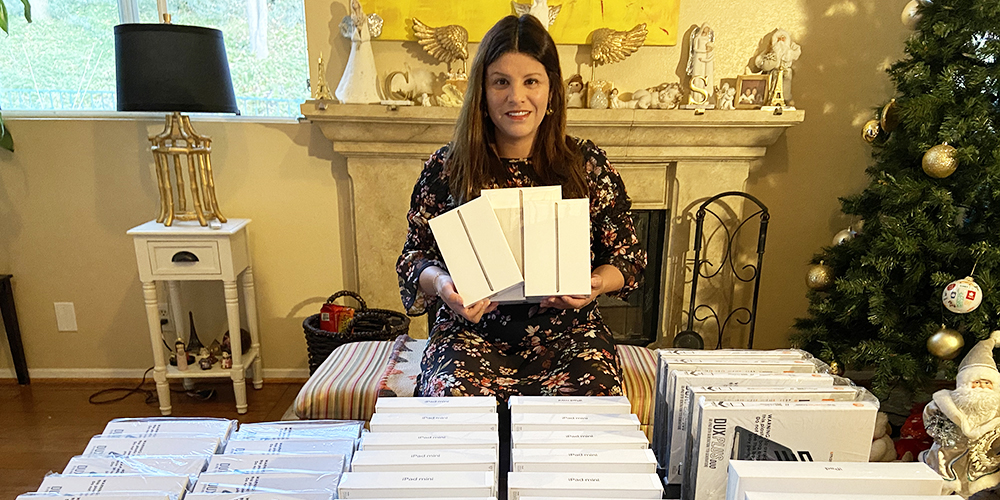USA: Donating iPads to Children at Hospital in Los Angeles
 As part of KIF America's program 1000 Ways To Give America, its has raised enough funds to buy dozens of new iPads and donated directly to the Child Life Program at the Children's Hospital Los Angeles. The donated items were delivered by KIF Global's Nia and Shin to the executives at the Child Life Program, which was very pleased to receive them.
As part of KIF America's program 1000 Ways To Give America, its has raised enough funds to buy dozens of new iPads and donated directly to the Child Life Program at the Children's Hospital Los Angeles. The donated items were delivered by KIF Global's Nia and Shin to the executives at the Child Life Program, which was very pleased to receive them.
About the Project
At Koyamada International Foundation (KIF), we are excited to create an initiative to support patients at Children’s Hospital Los Angeles with gifts made directly to the Child Life Program as part of the ongoing efforts of our program, 1000 Ways to Give. Through 1000 Ways to Give, in the past 10 years we have provided international and local individuals and families with the resources they desperately need.
Founded in 2008, KIF is a registered 501(c)(3) charitable organization and international organization with a mission to improve the quality of people’s life by empowering global youth and women to reach their full potential and by providing humanitarian aid to promote global peace and sustainable development.
 Our desire to create this project was born out of conversations with members of a small Bible study group from a small church in Los Angeles—one of whom is a CHLA nurse and another being KIF’s co-founder, Nia Lyte—and a small group of friends wanting to complete a community outreach project in the midst of the global COVID-19 pandemic. We would love to brighten the lives of the children at CHLA through 1000 Ways to Give and plan to do so by raising funds and donations for all CHLA patients through the hospital’s Child Life Program.
Our desire to create this project was born out of conversations with members of a small Bible study group from a small church in Los Angeles—one of whom is a CHLA nurse and another being KIF’s co-founder, Nia Lyte—and a small group of friends wanting to complete a community outreach project in the midst of the global COVID-19 pandemic. We would love to brighten the lives of the children at CHLA through 1000 Ways to Give and plan to do so by raising funds and donations for all CHLA patients through the hospital’s Child Life Program.
 We understand that COVID protocols require patients at the hospital to stay in their rooms at all times except when undergoing tests and only allow one parent or relative at a time to be with them. Many children are in their rooms alone as parents are fearful of transmitting the virus to them while the children are sick, and single-parent families may have other children at home that need their care. Often patients have no way to connect with their parents or loved ones while in the hospital. We have learned that the hospital has had to close all of its playrooms where children typically go to socialize, play games and just be kids.
We understand that COVID protocols require patients at the hospital to stay in their rooms at all times except when undergoing tests and only allow one parent or relative at a time to be with them. Many children are in their rooms alone as parents are fearful of transmitting the virus to them while the children are sick, and single-parent families may have other children at home that need their care. Often patients have no way to connect with their parents or loved ones while in the hospital. We have learned that the hospital has had to close all of its playrooms where children typically go to socialize, play games and just be kids.

